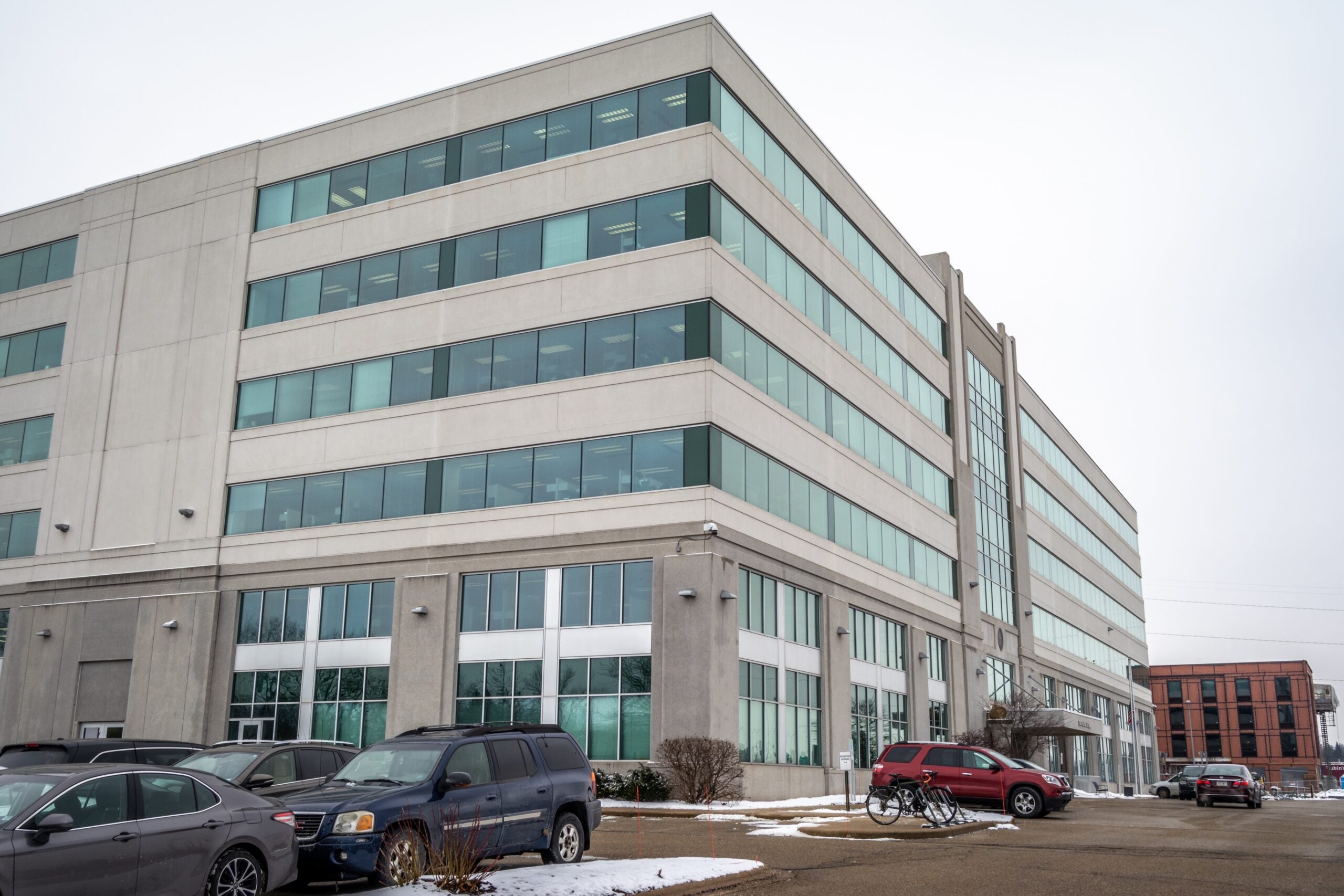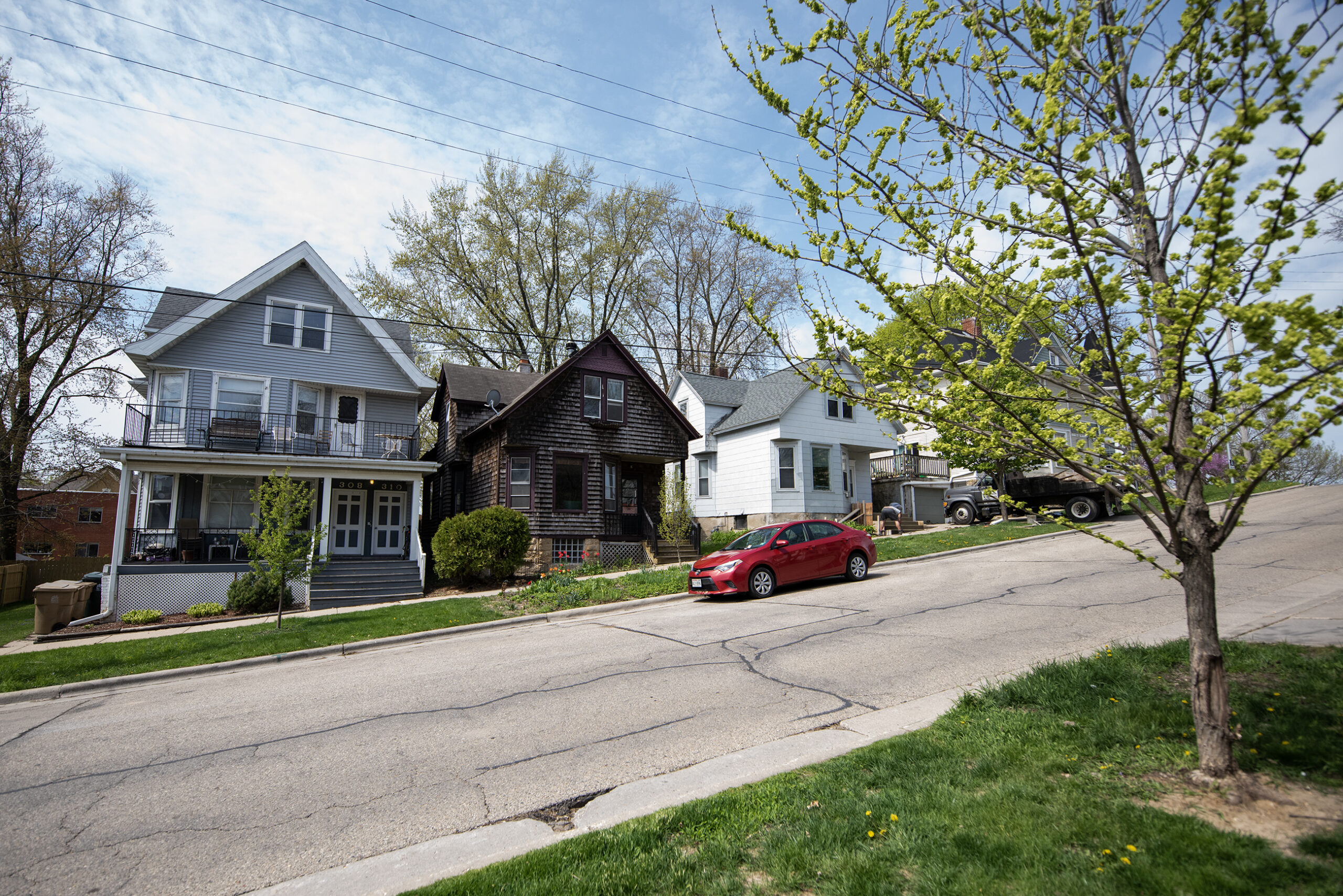Former Madison School Board President Gloria Reyes is challenging incumbent Satya Rhodes-Conway in an April 4 race for Madison mayor.
The two women advanced to a general election matchup after winning more votes in the February primary than challengers Scott Kerr and Daniel Howell Jr.
Thus far, the race has been dominated by issues including public transit, affordable housing, policing and racial equity — all of which came into play during a debate hosted by the Wisconsin Policy Forum last week.
News with a little more humanity
WPR’s “Wisconsin Today” newsletter keeps you connected to the state you love without feeling overwhelmed. No paywall. No agenda. No corporate filter.
Rhodes-Conway, who became Madison’s first openly gay mayor when she was elected in 2019, has centered her campaign around addressing climate change while improving public transit.
Reyes criticizes Rhodes-Conway over bus rapid transit plans
Last year, the city began roadwork for a bus rapid transit system, which is set to come online with the help of federal funding by 2025.
“This community has been talking about rapid transit for 30 years,” Rhodes-Conway said during the February debate, which was hosted by Downtown Madison Inc., and the Hoan Group. “Multiple mayors have had the opportunity to act on it. We’ve never acted on it until now.”
Bus rapid transit, or BRT, is designed to be efficient because of features like allowing passengers to pay their fares before boarding, having dedicated bus lanes and giving priority to buses at intersections.
Madison’s Common Council approved a redesign of existing Metro bus routes last year, with the expectation that the revamped routes for traditional buses will eventually complement BRT. A proposed East-West BRT line is expected to launch by late 2024 and city officials hope to eventually add a North-South line as well.
But Reyes, who served as deputy mayor under Rhodes-Conway’s predecessor, Paul Soglin, argued planned rapid transit routes won’t benefit all of Madison equally. If elected, she promised to commission an equity analysis of the plans.
“People have to walk two to three blocks further, and so it’s impacting our disability community, our senior community and people of color,” Reyes said.
Rhodes-Conway countered by pointing out that the aim of BRT is to shorten commutes by offering more frequent stops at the most popular locations.
“Bus rapid transit is a fast, frequent system of larger vehicles that does not go everywhere, sort of by definition,” she said.
Candidates agree affordable housing is lacking
Both Reyes and Rhodes-Conway agreed Madison struggles with a lack of affordable housing.
And when asked to explain the causes of that problem, Rhodes-Conway gave a fairly simple explanation.
“The diagnosis is we just didn’t build enough housing,” Rhodes-Conway said. “And for many years, our housing production, both in terms of rental and ownership, did not keep up with our population growth.”
The incumbent mayor also touted the expansion of Madison’s Affordable Housing Fund, which offers financial incentives to developers who build, preserve or improve affordable housing.
Reyes agreed Madison needs more housing, though she’s also been critical of recent zoning changes backed by Rhodes-Conway, including one that eases limits on the number of unrelated people who can rent a home together.
“The big difference between me and the mayor is that she’s really a policy person,” said Reyes, who pledged to convene a housing advisory team. “She really understands policy. I mean, I think that’s her experience, as in serving on the City Council … But it is practice, right? We have to figure out how we’re going to build housing in our city that’s practical, that really leans on the voices of our residents.”
Reyes said Rhodes-Conway hasn’t done enough to move people of color from renting to owning homes, and she accused the current administration of not listening enough to resident input.
“That’s why we are seeing the friction at City Council meetings, and we’re calling each other NIMBYs,” Reyes said, referencing the derisive acronym for “Not in My Backyard.”
Where candidates stand on policing, body cameras
Both Reyes and Rhodes-Conway called for a holistic approach to countering gun violence, through a combination of policing and a more preventive approach focused on public health, mental health and anti-poverty programs.
Additionally, Reyes, a former Madison police officer, said she supports outfitting police with body cameras, though she acknowledged that step alone is “not a panacea” when it comes to preventing police misconduct.
Rhodes-Conway did not go that far in endorsing body cameras. She said she supports yet-to-be-implemented plans for a body camera pilot program, which was narrowly approved by the Common Council last year. But she didn’t commit to continuing or expanding body camera use once that trial period is over.
“I’m looking forward to what we can learn from (the pilot),” Rhodes-Conway said. “But I think that the larger question for us is, ‘What can we as a community, as a city, as a police department do to prevent police misconduct and to prevent police violence in our community and make sure that never happens in Madison again?’ I don’t think that body cameras are the answer to that. I think there’s a bigger answer to that.”
How to vote
Polls will be open on Election Day from 7 a.m. to 8 p.m. The Madison City Clerk’s office is offering early in-person voting opportunities starting March 21.
Absentee ballots need to be received by mail or at a local clerk’s office by 8 p.m. April 4 in order to be counted.
In addition to the mayor’s race, Madison voters will also decide several contested races for common council.
Wisconsin Public Radio, © Copyright 2025, Board of Regents of the University of Wisconsin System and Wisconsin Educational Communications Board.






